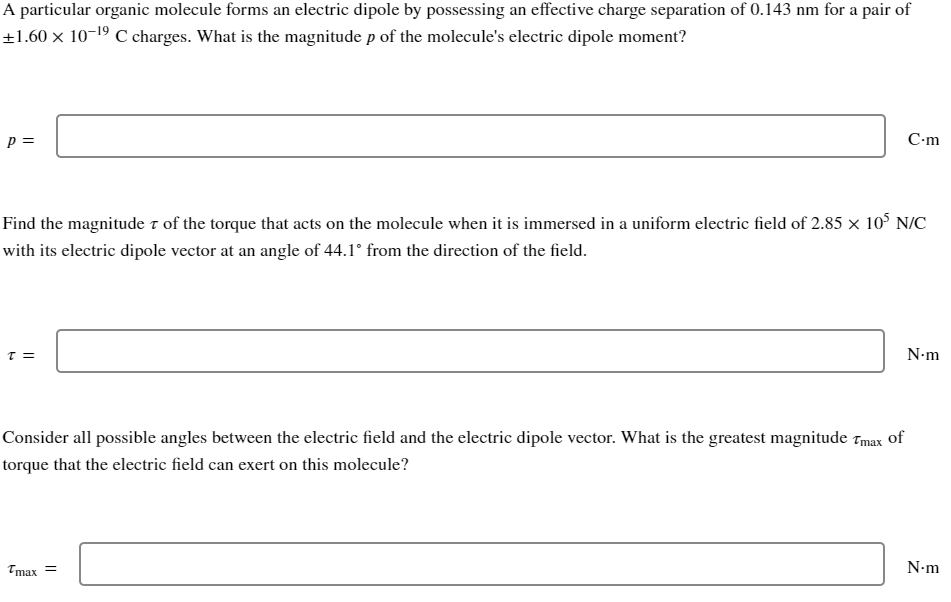Home /
Expert Answers /
Physics /
a-particular-organic-molecule-forms-an-electric-dipole-by-possessing-an-effective-charge-separatio-pa175
(Solved): A particular organic molecule forms an electric dipole by possessing an effective charge separatio ...
A particular organic molecule forms an electric dipole by possessing an effective charge separation of \( 0.143 \mathrm{~nm} \) for a pair of \( \pm 1.60 \times 10^{-19} \mathrm{C} \) charges. What is the magnitude \( p \) of the molecule's electric dipole moment? Find the magnitude \( \tau \) of the torque that acts on the molecule when it is immersed in a uniform electric field of \( 2.85 \times 10^{5} \mathrm{~N} / \mathrm{C} \) with its electric dipole vector at an angle of \( 44.1^{\circ} \) from the direction of the field. \[ \tau= \] Consider all possible angles between the electric field and the electric dipole vector. What is the greatest magnitude \( \tau_{\text {max }} \) of torque that the electric field can exert on this molecule? \( \tau_{\mathrm{ma}} \)
